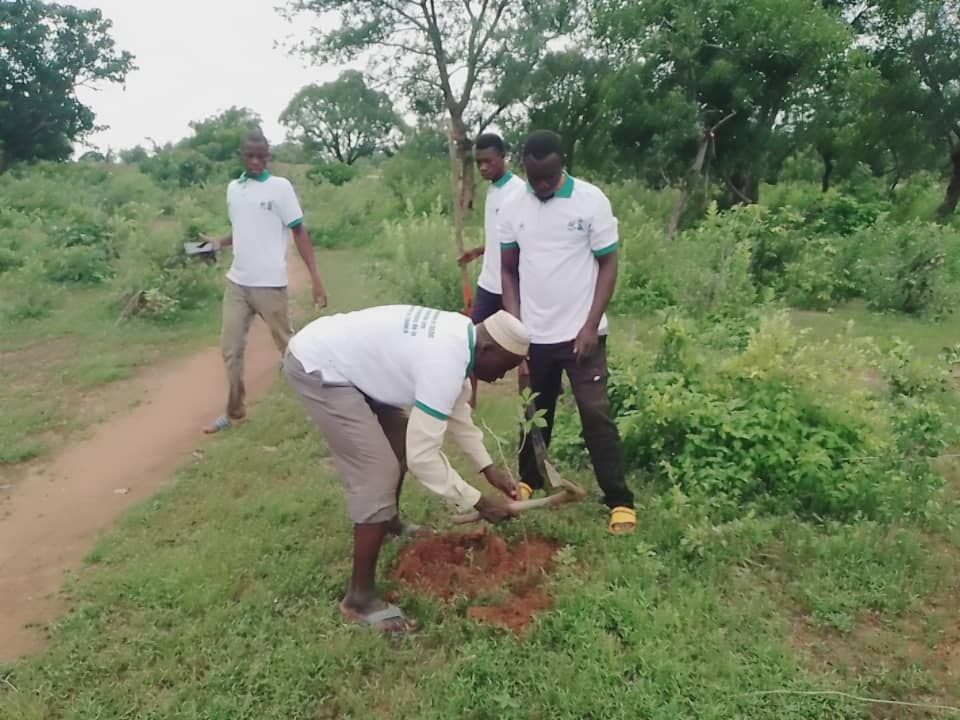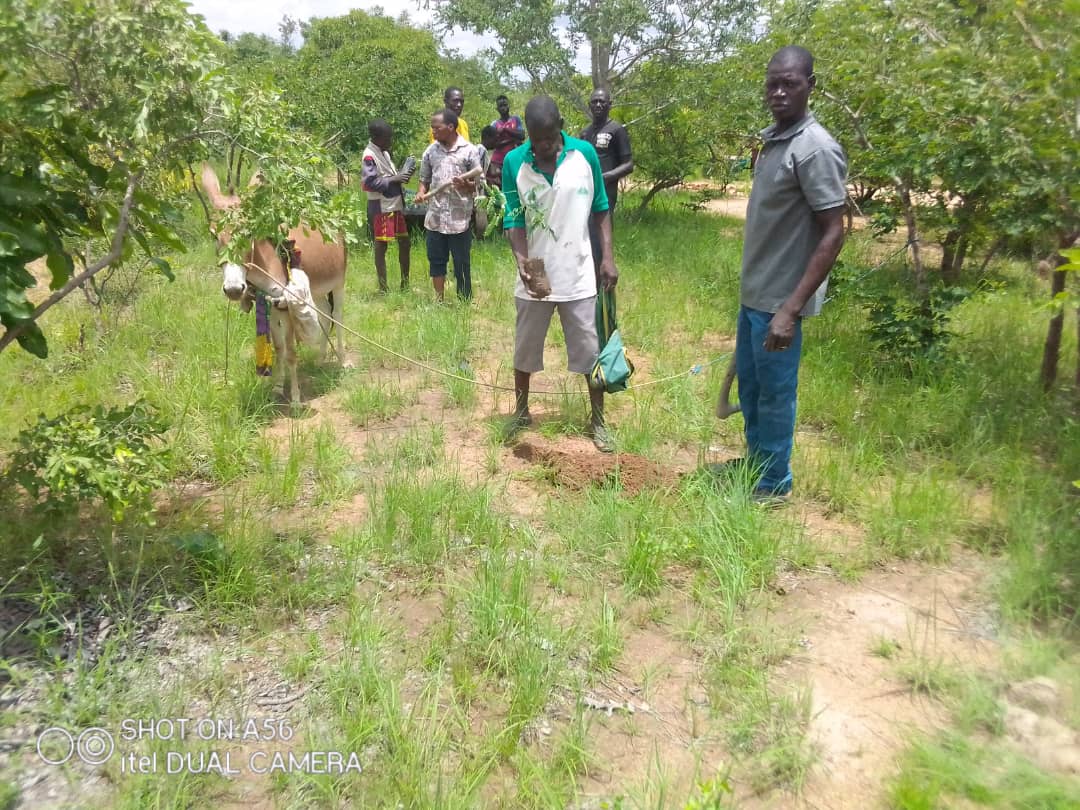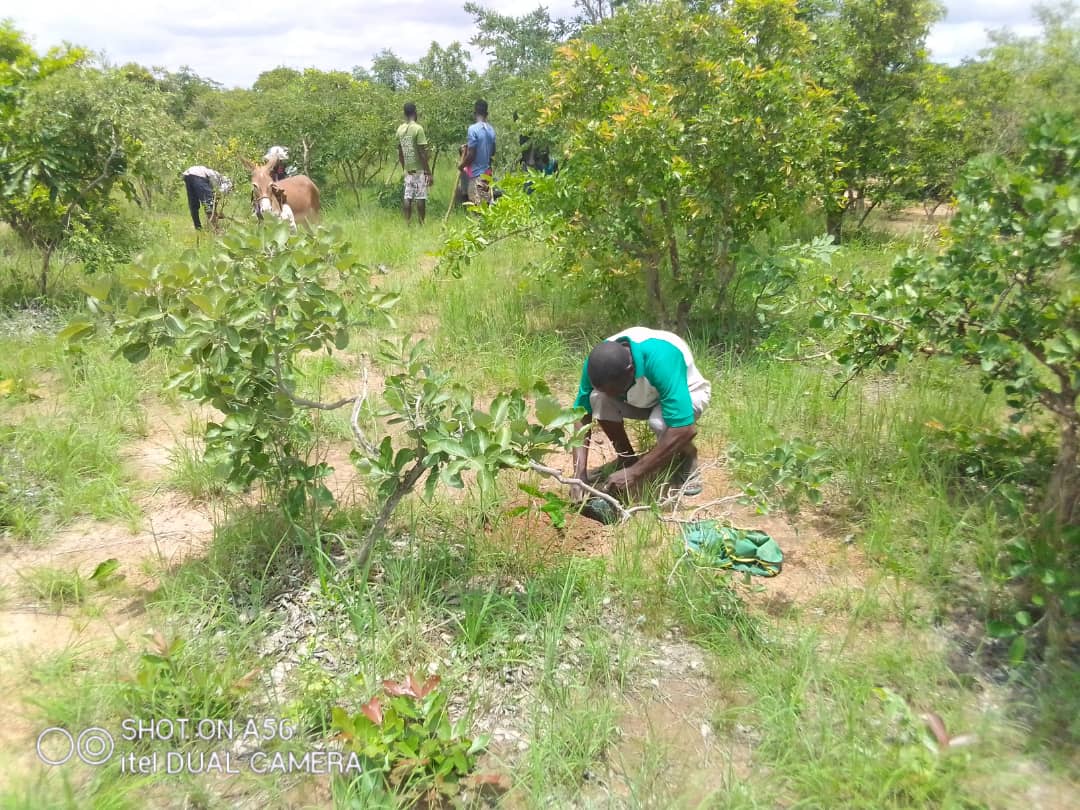Farming communities reducing their vulnerability to climate change in Burkina Faso
Organization: organisation yinéyinédian pour la nature et le développement durable (ond)
Donor: FRENCH EMBASSY, LOCAL AUTHORITIES, TECHNICAL AND FINANCIAL PARTNERS
Beneficiaries: 5000
In the south of Burkina Faso, local communities are reducing their vulnerability to the impacts of climate change by changing farming practices to preserve natural forests and ensure the sustainable management of natural resources.
Burkina Faso is on the frontline of climate change. The nation is currently experiencing increases in temperatures at 1.5 times the global average, with this projected to increase by 3-4°C by 2080-2099 – a rate substantially higher than the global average. With 80 percent of the population dependent on agriculture and livestock. Many people’s livelihoods are disrupted by increased climate variability, which impacts agricultural productivity, biodiversity and human health.
Organisation Yinéyinédian pour la Nature et le Développement Durable (OND) is working with local village communities in Burkina Faso to develop capacities for mitigation, adaptation and resilience to climate change. Its locally led intervention – Strengthening the adaptive capacities of local communities to climate change and the preservation of biodiversity – is currently being implemented and has two broad aims. First, to strengthen the resilience of local communities to adapt to climate change while ensuring the preservation of biodiversity. Second, to sustainably increase food and nutritional security in the project area while also increasing agricultural productivity and incomes.
At the heart of the wide-ranging project are activities to improve long-term resilience to climate change. These include applying agro-ecological practices in farmers' fields, promoting stoves and haylofts, producing seedlings in nurseries and planting fertilizer, farming fruit, medicinal and forest trees, managing community forests, promoting beekeeping for local women, mowing and conserving of fodder, and training producers about the challenges that climate change poses and the importance of conserving biodiversity.
“The intervention of our organization helps to solve the problems that are at the root of the degradation of the livelihoods of indigenous and local communities, including the degradation of land, biodiversity, non-timber and timber forest products,” explains Francois Benao from Organisation Yinéyinédian pour la Nature et le Développement.

Photo Credit: OND
“Involving and empowering grassroots communities through the establishment of local management committees made up of indigenous and local communities and the in-situ training of beneficiaries, our intervention allows them to take ownership project activities and become the main actors in the implementation and monitoring and evaluation of activities in the field."
Buy-in from the local communities has been a feature of the project from the very outset. Through a series of meetings organized between the beneficiaries, the stakeholders and Organisation Yinéyinédian pour la Nature et le Développement, the local community and stakeholders were involved in the design, implementation and monitoring and evaluation of the project.
During the implementation phase of the solution, Local Project Management Committees (LPMCs) were established to participate in the operational phase of the project. These are composed of local community and stakeholder representatives, and function as intermediaries between the Organisation Yinéyinédian pour la Nature et le Développement Durable and local people to ensure that solutions are aligned with local needs on the ground.
Local farmers’ knowledge, understanding and skills related to climate change resilience, climate finance and locally led adaptation have been built through a number of activities. These include sensitization sessions, training workshops, the sharing of information about the climate and weather to producers, and practical support for producers in the application of agro-ecological practices in their fields, such as the recovery and fertilization of degraded land for the benefit of agriculture and livestock.

Photo Credit: OND
Tree seedlings, various tools and work equipment, beehives, and infrastructure such as haylofts for fodder conservation, among other things, are provided by Organisation Yinéyinédian pour la Nature et le Développement Durable. Its services are in turn subsidized by local authorities and development partners through its participation in calls for projects.
An agroforestry farmer that has benefitted from the intervention describes how his life has changed:
“More than 5 years ago, my family experienced famine and its nutritional consequences, I was relentless to properly feed my family throughout the year. I fought heart and soul to ensure that my family had at least one meal a day during critical times of the year. This situation continued until the intervention in our village."

Photo Credit: OND
"Thanks to the application of good agro-ecological practices, my yields have increased, so I am currently making surplus food that I often sell. The OND has also taught us how to cut and preserve the natural fodder that I use for my livestock, and I sell the surplus. Equipped with 4 hives by the OND, I produce organic honey with my 4 hives and harvest an average of 320 liters per year that I sell.”
Organisation Yinéyinédian pour la Nature et le Développement Durable estimates that a total of more than 15,000 people have benefitted locally from the climate mitigation activities. As a result of the application of agro-ecological practices in local farmers’ fields, the yield per hectare has increased, while promoting improved stoves and haylofts has led to a substantial decrease in the rate at which trees have been felled for wood.
To date, the planting of seedlings and fertilizer trees has made it possible to recover 175 hectares of degraded land, while 525 hectares of individual and collective plantations have been created across three communes – which equate to areas the size of over 320 and 980 football fields respectively. Furthermore, the delimitation and conservation of 13 community forests has resulted in the sequestration of an estimated 650 tons of C02 per year.
The initiative began in 2017 in the municipality of Pô, and has subsequently been replicated in the municipality of Guiaro and the municipalities of Biéha. It has been delivered through collaboration with a number of actors, including embassies local authorities, technical and financial partners, cooperatives, local associations and state and private technical services.